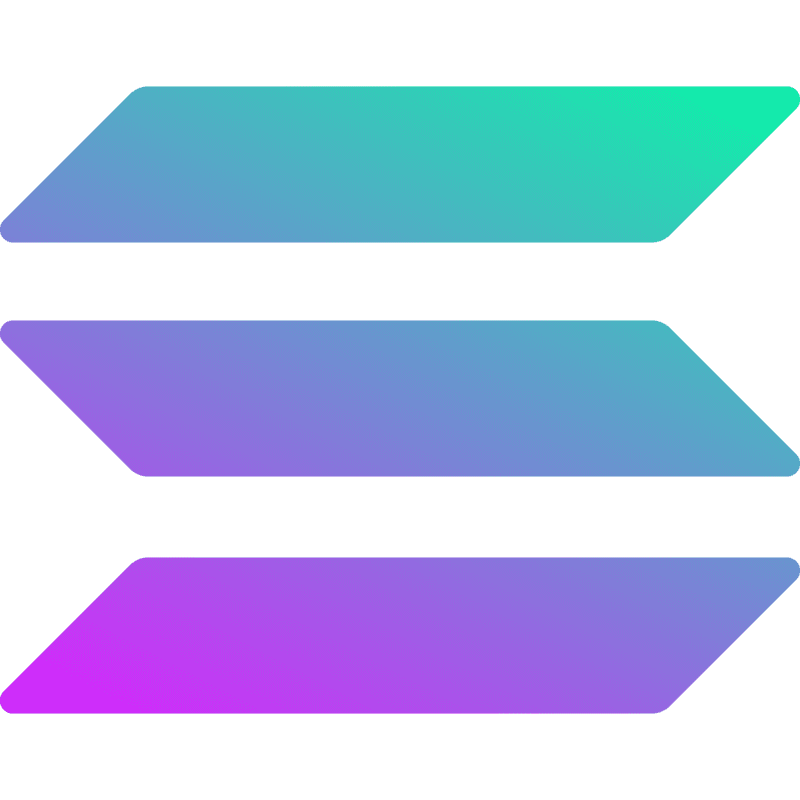Your Guide To Solana Programs And Top 10 Amazing Solana Programs Every Blockchain Enthusiasts Must Know

Solana Programs refer to the decentralized applications (DApps) and smart contracts built on the Solana blockchain. The Solana blockchain provides a platform for developers to create a wide range of programs, spanning from decentralized finance (DeFi) applications to non-fungible tokens (NFTs) and more. These programs leverage the unique features of the Solana ecosystem, including high throughput, low transaction costs, and a developer-friendly environment.
- Smart Contracts on Solana:
- Solana Programs are essentially smart contracts that run on the Solana blockchain. Smart contracts are self-executing contracts with the terms of the agreement directly written into code. They enable trustless and automated execution of agreements when predefined conditions are met. Solana’s smart contracts facilitate a variety of functionalities within the decentralized ecosystem.
- Decentralized Finance (DeFi) Applications:
- DeFi has been a prominent use case for Solana Programs. Developers leverage Solana’s high throughput and low transaction costs to build decentralized financial applications such as decentralized exchanges (DEXs), lending platforms, yield farming protocols, and more. The efficiency of Solana’s blockchain makes it an attractive platform for DeFi projects looking to provide fast and cost-effective financial services.
- Non-Fungible Tokens (NFTs):
- NFTs, unique digital assets representing ownership of digital or physical items, have gained widespread popularity. Solana supports the creation and trading of NFTs, enabling artists, gamers, and content creators to tokenize and sell their creations on the blockchain. Solana’s speed and low fees make it conducive for NFT platforms and marketplaces.
- Decentralized Applications (DApps):
- Solana facilitates the development of decentralized applications across various industries. DApps built on Solana can range from gaming and entertainment to supply chain management and beyond. The platform’s high throughput allows for real-time interactions and responsive user experiences in applications, attracting developers from diverse fields.
- Solana Development Environment:
- Solana offers a developer-friendly environment with support for programming in languages like Rust. The Rust programming language is known for its performance and safety features, providing developers with a versatile toolset to build efficient and secure Solana Programs. The ease of development encourages innovation within the Solana ecosystem.
- Innovative Use Cases:
- Beyond traditional sectors, Solana Programs have been exploring innovative use cases. For example, decentralized autonomous organizations (DAOs) on Solana have gained traction, enabling community-driven decision-making and governance. These novel applications showcase the flexibility and adaptability of Solana as a blockchain platform.
- Community and Ecosystem Growth:
- The Solana community actively contributes to the growth of the ecosystem. The Solana Foundation provides support through grants, initiatives, and partnerships, fostering an environment where developers can collaborate and bring their ideas to fruition. This collaborative approach has led to the rapid expansion of the Solana ecosystem.
- Global Impact:
- Solana Programs have a global impact, providing financial inclusion, decentralized solutions, and new opportunities for individuals and businesses worldwide. The platform’s scalability and efficiency contribute to its ability to handle a diverse range of applications with a potential for mass adoption.
Solana Programs encompass a diverse array of decentralized applications and smart contracts built on the Solana blockchain. From DeFi and NFTs to innovative use cases and a developer-friendly environment, Solana offers a robust platform for developers to create efficient and scalable programs that contribute to the broader decentralized ecosystem. As the Solana ecosystem continues to evolve, it remains an exciting space for innovation and growth within the blockchain industry.
Importance of Solana Programs

The importance of Solana Programs lies in their contribution to the development of a vibrant and efficient decentralized ecosystem on the Solana blockchain. Here are several key points highlighting the significance of Solana Programs:
- Scalability and Throughput:
- Solana’s high throughput, capable of supporting over 50,000 transactions per second, is a crucial factor. Solana Programs leverage this scalability, ensuring fast and efficient execution of smart contracts and decentralized applications. This is particularly important for applications in decentralized finance (DeFi) and other sectors where transaction speed is essential.
- Low Transaction Costs:
- Solana’s commitment to low transaction costs is vital for the widespread adoption of Solana Programs. In comparison to some other blockchain platforms, Solana’s cost-effectiveness makes it an attractive choice for developers and users, especially in scenarios where microtransactions or frequent interactions are involved.
- Diverse Use Cases:
- Solana Programs facilitate a wide range of use cases across different industries. From DeFi applications and non-fungible tokens (NFTs) to gaming, supply chain management, and more, the versatility of Solana Programs demonstrates their importance in addressing diverse needs within the decentralized ecosystem.
- Developer-Friendly Environment:
- Solana’s support for the Rust programming language and its developer-friendly environment encourage innovation. Developers can leverage a familiar and efficient language to build robust and secure Solana Programs. This accessibility attracts a diverse range of developers, fostering a collaborative and dynamic ecosystem.
- Innovation in DeFi and NFTs:
- Solana Programs have played a significant role in the innovation within the DeFi and NFT spaces. The efficiency of Solana’s blockchain allows developers to create novel financial instruments, decentralized exchanges, and unique digital assets. This innovation contributes to the overall growth and evolution of decentralized finance and digital asset ownership.
- Global Impact and Financial Inclusion:
- Solana Programs have the potential to make a global impact by providing financial services and solutions to individuals who may not have access to traditional banking. The efficiency and cost-effectiveness of Solana contribute to financial inclusion, allowing people worldwide to participate in decentralized finance and access new opportunities.
- Community and Ecosystem Growth:
- The importance of Solana Programs is underscored by the growth of the Solana community and ecosystem. The active participation of developers, the Solana Foundation’s support through grants, and collaborative initiatives contribute to a thriving ecosystem. This growth is indicative of the platform’s significance in the broader blockchain space.
- Responsive and Resilient Infrastructure:
- Solana’s dynamic sharding and node synchronization mechanisms contribute to the responsiveness and resilience of Solana Programs. This ensures that the blockchain can adapt to changing network conditions, reducing the likelihood of disruptions and providing a reliable infrastructure for decentralized applications.
The importance of Solana programs lies in their ability to harness the unique features of the Solana blockchain, offering scalability, low transaction costs, and a developer-friendly environment. These programs contribute to innovation across various industries, drive global financial inclusion, and foster the growth of a dynamic and collaborative decentralized ecosystem. As Solana continues to evolve, the importance of its programs is likely to expand, influencing the broader landscape of blockchain applications and services.
New #airdrop: Satino (FCFS 3000)
— Airdrop6.com (@Airdrop6_com) February 1, 2024
Reward: 200 STN
News: Solana
Distribution date: February 18th
🔗Airdrop Link: https://t.co/w73NN3rJwX
FCFS 3000 eligible users will receive airdrop rewards#Airdrop6 pic.twitter.com/JYouBpaXpn
Here are ten noteworthy Solana programs:

- Serum (SRM):
- Serum is a decentralized exchange (DEX) built on Solana, offering fast and low-cost trading of various assets. It provides liquidity pools, order books, and other features that contribute to the decentralized finance (DeFi) ecosystem on Solana.
- Raydium (RAY):
- Raydium is a decentralized automated market maker (AMM) and liquidity provider built on the Solana blockchain. It facilitates trading, yield farming, and staking of various tokens, contributing to the decentralized finance landscape.
- Mango Markets (MNGO):
- Mango Markets is a decentralized finance platform on Solana that allows users to trade, borrow, and lend various assets. It aims to provide a comprehensive DeFi experience on the Solana blockchain.
- Sollet Wallet:
- Sollet is a user-friendly wallet that allows users to manage their Solana assets and interact with decentralized applications on the Solana blockchain. It provides a secure and convenient solution for storing and accessing Solana-based tokens.
- Audius (AUDIO):
- Audius is a decentralized music streaming platform that utilizes the Solana blockchain. It allows artists to publish and monetize their music without relying on traditional intermediaries, offering a direct connection between creators and listeners.
- Saber (SBR):
- Saber is a decentralized stablecoin exchange and liquidity pool on Solana. It provides a platform for users to trade stablecoins and earn yield through liquidity provision.
- Solana NFT Platforms (e.g., Magic Eden, Solanart):
- Several NFT platforms have emerged on Solana, such as Magic Eden and Solanart, enabling the creation, trading, and ownership of non-fungible tokens (NFTs) on the Solana blockchain.
- Orca (ORCA):
- Orca is a decentralized exchange and liquidity provider on Solana, offering users the ability to trade various assets and provide liquidity to earn rewards. It aims to provide a seamless and efficient DeFi experience on Solana.
- Bonfida (FIDA):
- Bonfida is a decentralized liquidity network on Solana that offers trading, staking, and yield farming services. It aims to enhance liquidity and provide additional features for Solana users.
- Star Atlas (ATLAS):
- Star Atlas is a blockchain-based gaming metaverse built on Solana. It combines blockchain technology with gaming, allowing players to own, trade, and earn rewards for in-game assets.
These Solana programs showcase the diversity of applications and services being built on the Solana blockchain, ranging from decentralized finance to gaming and NFTs. It’s important to stay updated with the latest developments in the Solana ecosystem as new programs and projects continue to emerge.
Conclusion
In conclusion, Solana has emerged as a dynamic and innovative blockchain platform, hosting a diverse array of programs that contribute to the growth of decentralized applications and services. The platform’s unique features, including high throughput, low transaction costs, and a developer-friendly environment, have attracted a thriving ecosystem of projects across various sectors.
Noteworthy Solana programs such as Serum, Raydium, Mango Markets, and others play pivotal roles in decentralized finance (DeFi), providing users with efficient and cost-effective solutions for trading, lending, and liquidity provision. The Solana blockchain has also become a hub for non-fungible tokens (NFTs) and blockchain-based gaming, exemplified by platforms like Magic Eden, Solanart, Star Atlas, and more.
The Solana community actively contributes to the growth of the ecosystem, supported by initiatives from the Solana Foundation. As the blockchain space evolves, Solana’s scalability, responsive infrastructure, and commitment to innovation position it as a key player in the broader blockchain and cryptocurrency landscape.




























































